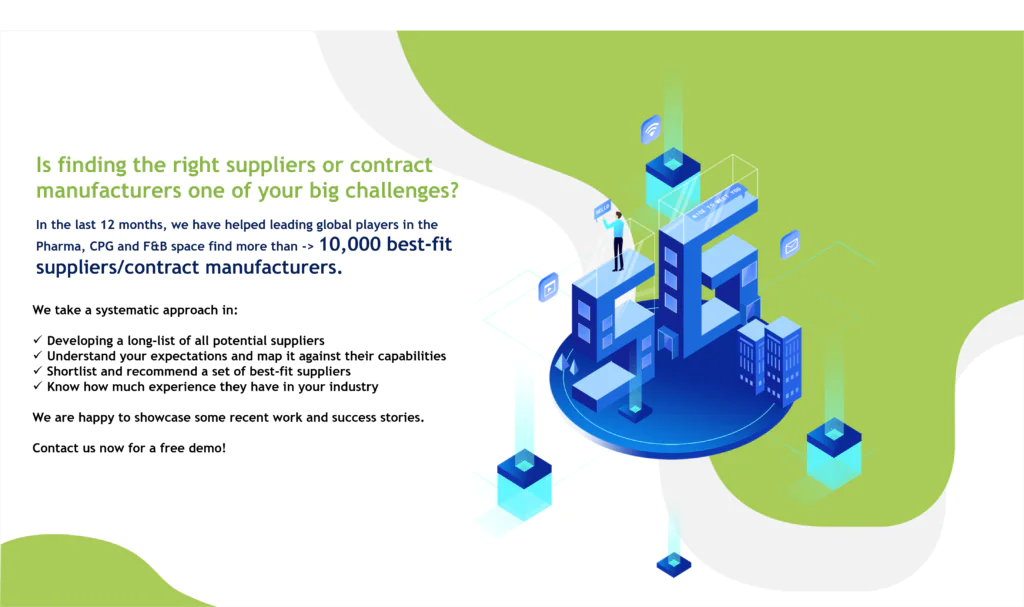Author: Manpreet Kaur, Assistant Manager Presales – Sourcing and Procurement Intelligence
In today’s business landscape, competition no longer exists solely between individual organizations. Rather, there is also competition between their supply networks. To build the best supply networks, it is essential to establish integrated business models that prioritize effective relationships and value creation. Procurement Benchmarking plays a vital role as the main interface between an organization and its suppliers.
Benchmarking involves comparing the procurement function’s performance with that of the best competitor or organization within the industry. It is not limited to examining superior performance but also includes an evaluation of how it is achieved. The information gathered is used to establish performance targets and action plans for the procurement function. Benchmarking can determine procurement’s performance and industry standards simultaneously. It can draw a comparison between how procurement is currently performing and what it needs to achieve over time. In this process, it can identify gaps that must be filled to reach the desired level of performance.
Challenges in Procurement Benchmarking
Choosing KPIs that align with an organization's unique procurement goals can be complex due to varying priorities.
Benchmarking effectiveness is heavily reliant on comprehensive, accurate, and readily available data.
Differences in organizational structures, cultures, and goals make cross-organization procurement comparisons challenging.
Select the right key performance indicators (KPIs)
The process of selecting appropriate key performance indicators (KPIs) and metrics for benchmarking purposes can be a complex task. Each organization may have its own distinct priorities when it comes to evaluating procurement performance, making it challenging to identify the most suitable set of metrics that align with the organization’s unique goals and objectives. This necessitates careful consideration and evaluation to ensure that the chosen metrics accurately capture and reflect the organization’s specific objectives in the realm of procurement.
Benchmarking relies heavily on data and availability
Data plays a crucial role in benchmarking, and the challenges associated with data availability and quality can be significant. Many organizations face difficulties in obtaining comprehensive and accurate data for comparison purposes. This includes data related to spending, supplier performance, and various aspects of procurement processes. The lack of reliable data can hinder the benchmarking process, making it challenging to accurately assess and compare performance against industry standards or best practices. Overcoming these data challenges requires organizations to invest in robust data collection and management systems to ensure the availability of reliable and relevant data for effective benchmarking.
Different organizations may have unique procurement processes
Comparing procurement processes across different organizations can be a complex task due to the inherent uniqueness of each organization’s approach. This variability arises from factors such as organizational structure, culture, and goals, which can significantly impact the way procurement is conducted. As a result, it becomes challenging to make direct comparisons between organizations. Each organization’s distinct processes and practices must be taken into account when benchmarking, ensuring that the comparisons are contextualized and considerate of the specific factors that contribute to the variability in procurement approaches.
Top 5 Benefits of Procurement Benchmarking
Procurement benchmarking is a strategic practice that allows organizations to evaluate their procurement processes against industry standards and best practices. This analysis can yield significant benefits, enhancing efficiency, cost-effectiveness, and overall performance. Here are the top five benefits of procurement benchmarking:
Cost Reduction
Benchmarking helps organizations identify areas where they can reduce costs. By comparing procurement expenses with industry averages, businesses can discover opportunities for savings through better supplier negotiations or more efficient purchasing strategies. This process often leads to strategic sourcing decisions that optimize spending and enhance profitability.
Improved Operational Efficiency
Through benchmarking, companies can streamline their procurement processes by identifying inefficiencies and adopting best practices from leading organizations. This results in reduced cycle times for purchasing, improved order accuracy, and enhanced productivity among procurement staff. Efficient processes contribute to faster response times and better service delivery.
Enhanced Supplier Relationships
Benchmarking provides insights into supplier performance and market standards, enabling organizations to foster stronger relationships with their suppliers. By understanding industry benchmarks for quality, delivery times, and pricing, companies can engage in more informed discussions with suppliers, leading to improved collaboration and mutually beneficial agreements.
Increased Transparency and Compliance
A robust benchmarking process enhances transparency in procurement activities by establishing clear metrics for performance evaluation. This transparency helps organizations ensure compliance with internal policies and external regulations. It also facilitates better tracking of procurement activities, making it easier to identify potential risks and address them proactively.
Strategic Decision-Making
Benchmarking equips management with valuable data that informs strategic decision-making. By understanding how their procurement practices stack up against peers, organizations can make informed choices about resource allocation, supplier selection, and process improvements. This data-driven approach empowers leaders to align procurement strategies with broader business goals.
Procurement benchmarking is not just a tool for assessment; it is a vital strategy that drives continuous improvement across procurement functions, ultimately contributing to an organization’s competitive advantage in the marketplace.
Ready to transform your procurement strategy? Connect with our experts at SpendEdge for personalized benchmarking services and the latest industry insights. Our tailored solutions are designed to help you achieve superior performance and drive continuous improvement.
How SpendEdge Helps Organizations with Procurement Benchmarking
Deep dive benchmarking exercises:
At Spendedge, we specialize in conducting thorough benchmarking exercises that delve deep into the procurement functions of organizations. Our aim is to identify the most appropriate key performance indicators (KPIs) and metrics that accurately measure and evaluate procurement performance. Through our comprehensive approach, we analyze various aspects of procurement, including spending patterns, supplier performance, and procurement processes. By leveraging our expertise and industry knowledge, we assist organizations in selecting the right set of KPIs and metrics that align with their specific goals and objectives. Our benchmarking services provide valuable insights and recommendations to enhance procurement performance and drive organizational success.
Research studies to provide visibility on the latest industry trends:
At SpendEdge our experts offer research studies that aim to enhance clients’ procurement processes by providing valuable insights into the latest industry trends, regulations, and emerging best practices. These studies are designed to offer visibility and keep clients informed about the dynamic landscape of their respective industries. By leveraging our services, clients can gain a competitive edge in their procurement operations. Our research studies delve deep into market dynamics, supplier landscapes, and regulatory changes, enabling clients to make informed decisions and optimize their procurement strategies to stay ahead in the market. With SpendEdge, clients can access comprehensive and up-to-date information to drive efficiency and effectiveness in their procurement processes.
The Success Story of SpendEdge Helping an Oil and Gas Company with Procurement Problems
Our client is a leading oil and gas company based in France. They were interested in discovering the best practices followed by successful procurement organizations across various industries. They also wanted to identify the overall mission of the purchasing department in best-in-class procurement organizations to increase their visibility.
Our SpendEdge professionals assisted by thoroughly comprehending the structure of organizations’ purchasing departments and their overall responsibilities. Our experts evaluated the annual purchase spending, volume, and efficiency, and assessed the engagement models and key parameters/metrics for measuring procurement efficiency by gathering information from various primary and secondary resources. We provided a detailed comparison of different procurement organizations, including their geographic presence, structure, overall procurement strategy, and more. Additionally, we offered enhanced visibility into emerging procurement best practices, commonly observed KPIs and trends.

Are you ready to elevate your procurement function to new heights? Connect with SpendEdge to access comprehensive benchmarking services and cutting-edge industry insights. Our tailored solutions will help you achieve superior performance and drive continuous improvement.




